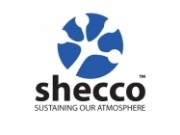We are pleased to announce the first round of case studies from CAREL, Scantec, Emerson, DongQi and Sanhua to be presented at ATMOsphere China 2018.
CAREL, DongQi, Emerson, Sanhua and Scantec will discuss their innovative natural refrigerant-based technologies at the conference.
The presentations are:
CAREL | China's first transcritical CO2 store with CAREL control solutions, METRO, Beijing
The presentation will discuss CAREL’s role in the first transcritical CO2 project in a METRO wholesale store in Beijing.
Building on many years of experience with CO2 transcritical projects and European know-how, CAREL supplied the store’s total control system, including the rack system controller, cabinet control with step electronic expansion valves and local supervisory system. To provide reliability and efficiency, the company used the pR300T rack controller to control all the main parts of the rack system, from the suction compressors group to the gas cooler and the high and medium pressure valves.
Real data on energy consumption will be shown during the presentation to showcase, one more time, the sustainability of CO2 as a refrigerant working well in China’s climate.
DongQi | CO2 heat pump for space heating by Peijian Du
The presentation will detail the use of CO2 heat pumps as a substitute heat source for space heating.A method of mixing water at the inlet of cold water in the gas cooler of a CO2 heat pump will be explained, with test results showing that the method doesn't only ensure the steadiness of CO2 air-source heat pump hot water systems in low temperature conditions, it also increases the operation time and reduces the frequency of frosting. The presentation will share real data results of a demonstration project using a CO2 heat pump as a heat source for space heating in Dalian.
Emerson | CO2 hybrid cascade system retrofitting at Anhui Hong Fu Supermarket flagship store by Younker You
This case study will discuss the Anhui Hong Fu Supermarket retrofit project with R744 and R134a at its flagship store. The end user expected to have about 13% energy savings and 10.8% TEWI reduction compared to traditional R22 refrigeration systems, at the same time, and aimed to eliminate the ozone depletion effect of R22. Many world-leading technologies were used in this project, like Emerson digital modulation, CoreSense™ Diagnostics, specialized CO2 semi-hermetic and scroll compressors, flow control components and control solutions.The presentation will share the statistical analysis data of the store which was opened in September 2017, showing that the new R134a/R744 cascade refrigeration system has an extremely steady running performance and reduction of the compressor's cycle downtime to 20% of the traditional system, which could have a significant improvement on energy savings and the compressors' service life.
Sanhua | R290 heat pump systems – moving from coal to electricity by Huang Lin-jie
The presentation will showcase that R290 is the optimal solution to replace R22 faced with the global phase-down of HFCs. The company will explain that the use of R290 and microchannel heat exchangers for heat pump systems will result in higher efficiency, over 50% less in weight, and over 50% less in refrigerant charge, while also examining the advantages and disadvantages of R290 heat pump systems.
SANHUA will discuss the “Coal to Electricity” campaign in China and will discuss the environmental benefits it would bring based on their projections with an estimated installed stock of 2.57 million units by 2020 in Northern China.
Scantec | New low-charge ammonia plant servicing a refrigerated warehouse distribution facility in Dongguan by Stefan Jensen
The case study will discuss what is believed to be the first central type, dual compression stage, low charge NH3 refrigeration plant in China fitted with external penthouse evaporators with automatic ambient air defrost. An added safety feature of the penthouse evaporators is automatic venting of the ammonia to ambient in the event of a refrigerant leak. The ambient air defrost also eliminates the common problem of liquid hammer associated with some hot gas defrost methods. This improves the overall safety of the installation. Loss of the entire operating charge from one evaporator (<5 kg) will cause an NH3 concentration in the cold store of <300 ppm (IDLH value) in the event automatic venting malfunctions. Superior energy performance is achieved through the use of variable frequency drives on all compressors and evaporator fans.
The case study will include measured specific energy performances over an extended period.
